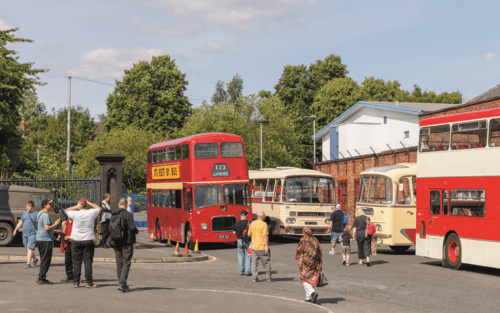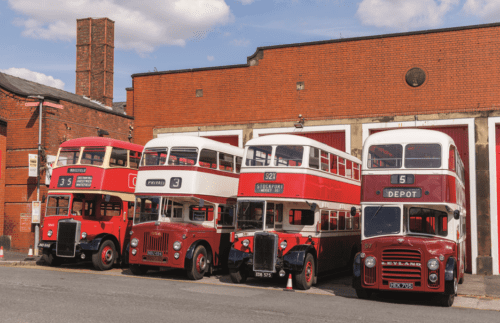
Paul Williams reports from the Museum of Transport, Greater Manchester, which recently celebrated the buses of the 1960s in style
The 1960s was the decade of the Beatles, miniskirts, Austin Minis, Twiggy – and, er, the Transport Act 1968 and the widespread introduction of rear-engined buses in the UK.
Okay, the last two on that last aren’t as sexy as Michael Caine in a floral shirt, but even so there’s a ‘something’ about buses of the 1960s. The previous decade was all about making buses cheaper to run as passenger numbers fell and fuel prices rose (seems familiar?), leading to no-frills lightweight buses designed to sip diesel rather than drinking it. It was all about doing less with even less, and everything from paint schemes to cushions was about cheeseparing.
Come the 1960s and Britain seemed just that little bit bright again. And Britain’s bus operators and makers started to think that bus travel wasn’t just about cutting costs – it was also about attracting passengers by creating brighter liveries, more inviting interiors and better access. It was an exciting time with lots of innovations, many successful, some less so. And the variety was almost infinite, with traditional Leyland front-engined buses entering service after sleek, modern buses were running in the town next door.
So it was with some anticipation that CBW attended the ‘Ticket to Ride’ 1960s event at the Museum of Transport Greater Manchester. Britain’s first bus service started in this region, in 1824, and the Museum has been holding a series of events this year to celebrate the bicentenary and themed by era. The latest was the 1960s and the museum had promised to dig as many of its 1960s buses out of the museum as it could, and send them on free bus rides around the area.

By subscribing you will benefit from:
- Operator & Supplier Profiles
- Face-to-Face Interviews
- Lastest News
- Test Drives and Reviews
- Legal Updates
- Route Focus
- Industry Insider Opinions
- Passenger Perspective
- Vehicle Launches
- and much more!


